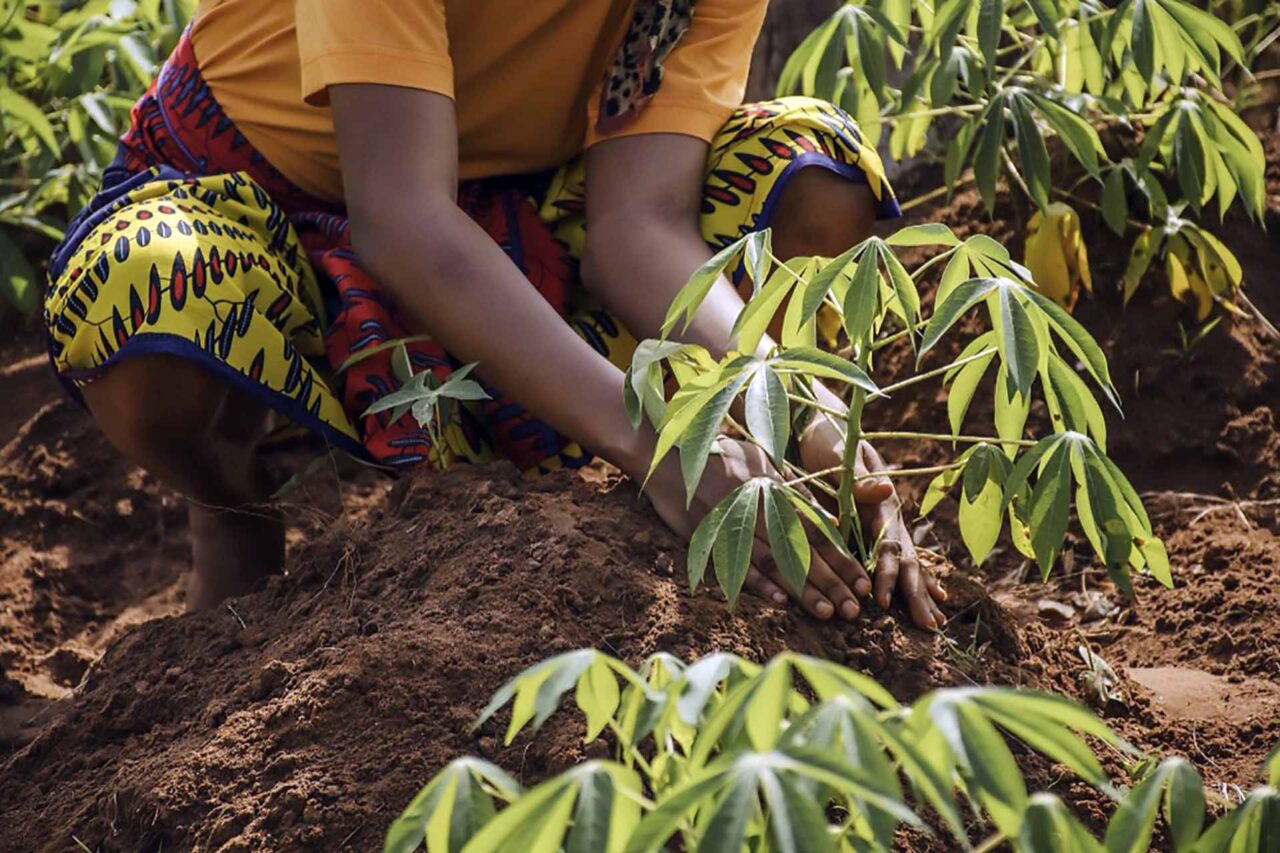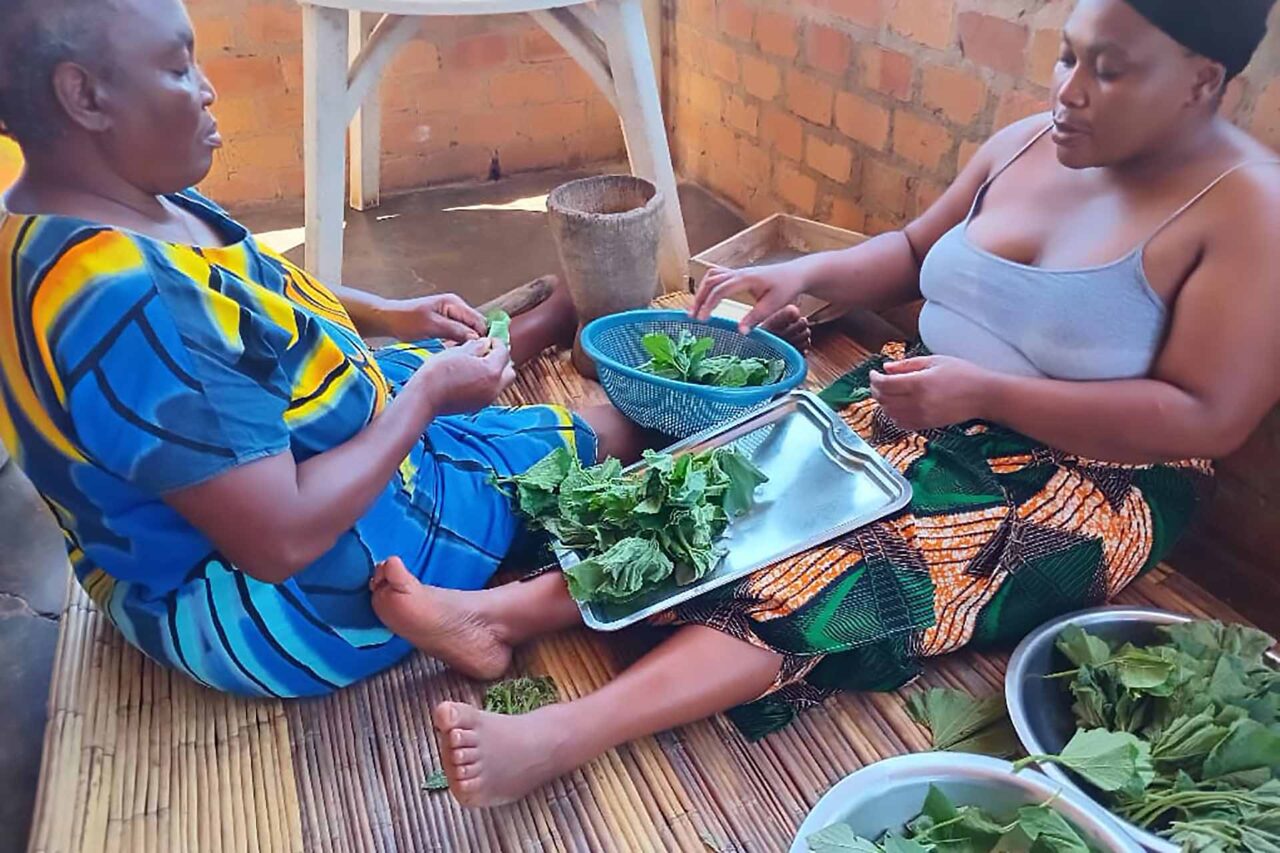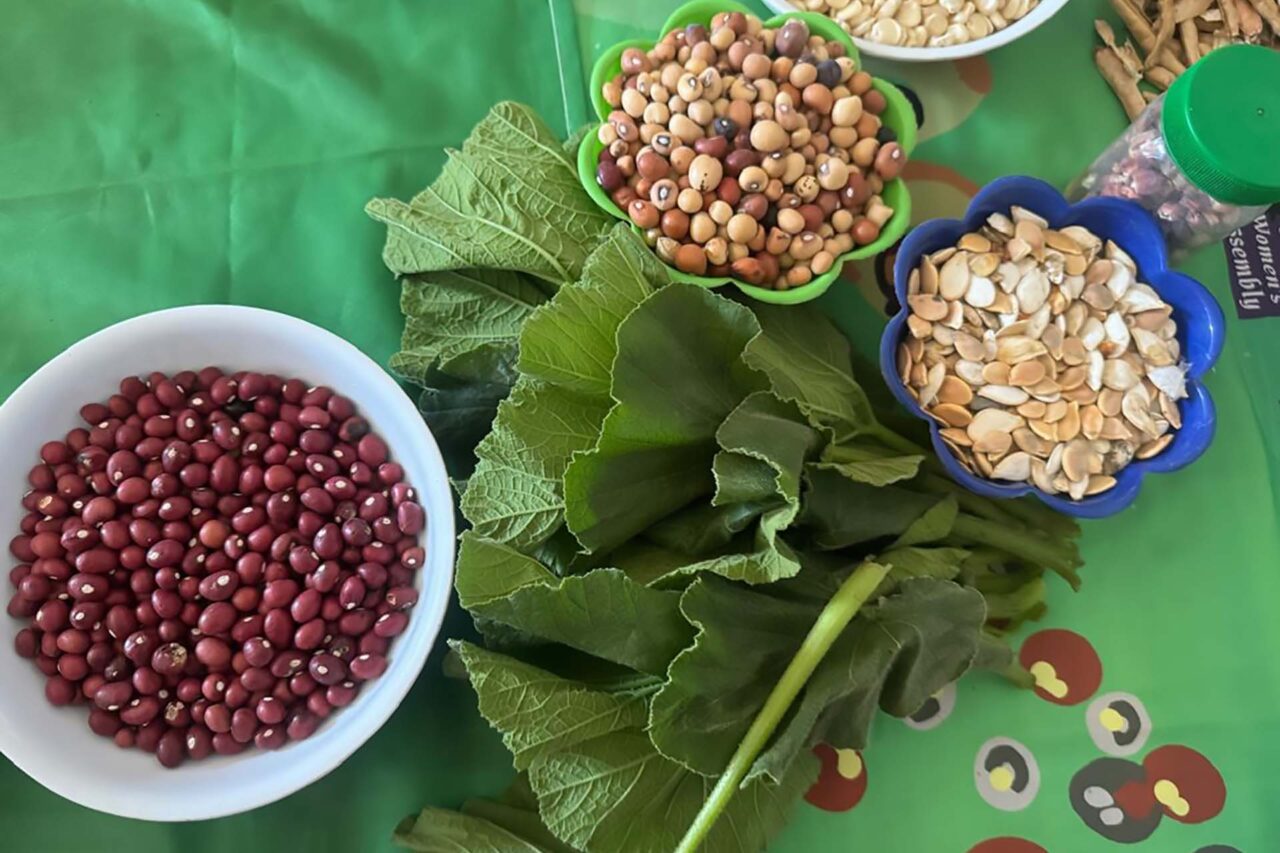Climate change is a reality in Casamance, the area of intervention of the Nutritional African Foods Initiative (NAFI) project, which is supported by the African Women's Collaborative for Healthy Food Systems (the Collaborative) and implemented in Casamance (Senegal) in the districts of Kolda, Sédhiou and Ziguinchor by the Association of Young Farmers of Casamance (Ajac/Lukkal), a member of the pan-African movement of rural women known as “We are the Solution” (Nous Sommes la Solution - NSS). It (climate change) is characterised, among other things, by the modification of the rainfall patterns, the decline in soil fertility, the salinisation and silting up of arable land, particularly rice-farming areas and underwater springs, especially in coastal areas due to the strong erosion dynamics and the rise in sea level which contribute in adversely affecting the living conditions of local communities in a number of ways: decrease in production, loss of biodiversity and deterioration of human health, resulting in food insecurity, irregular emigration, and the scarcity and overexploitation of natural resources.
Senegal
Peasant Rice and Climate Change
What Approaches and Agricultural Practices for Good Quality Production and Better Yields?
Introduction
Agriculture in Casamance is dependent on the rainy season.
In order to cope with and adapt to climate change, women farmers are opting for on-time cultivation but also for agroecological approaches and practices: construction of dikes, division of plots, construction of water retention and desalination dikes (desalination and fight against silting) in addition to ploughing with furrows. In addition to the choice of short-cycle farmer varieties adapted to the timing of the rainy season, training on good agroecological practices, the use of natural or organic biofertilisers and bioprotectants, but also the use of the biodynamic technique, they (women farmers) use post-harvest ploughing methods. The use of biofertilisers and bioprotectants reduces the number of hours (time) of work in rice fields thanks to the balance (less grass and rapid plant growth) that these inputs bring. This agroecological practice allows for a long shelf life, unlike other plants produced with chemical inputs. After processing, the taste of the crops does not change and they sell very quickly.
N.B: Biodynamics is ancient knowledge based on the lunar month. It is based on the choice of days that are favorable to crop production, among other things.
I. Farmer's Seeds
The resilience properties of peasant rice are found in this farmers’ seed but also in its natural qualities that allow it to adapt to climatic hazards. This seed is jealously guarded and passed down from generation to generation.
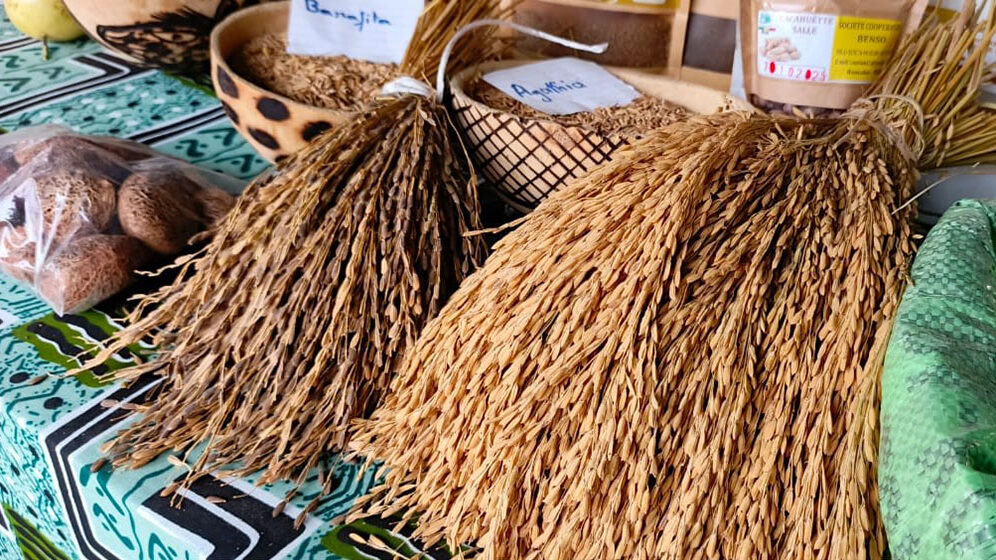
II. Clay Pottery
Clay pottery enables proper preservation of farmers’ seeds. This type of storage can last for up to ten years without the seed losing its original properties.

III. Production of Rice Seedlings
The resilience properties of peasant rice are found in this farmers’ seed but also in its natural qualities that allow it to adapt to climatic hazards. This seed is jealously guarded and passed down from generation to generation.

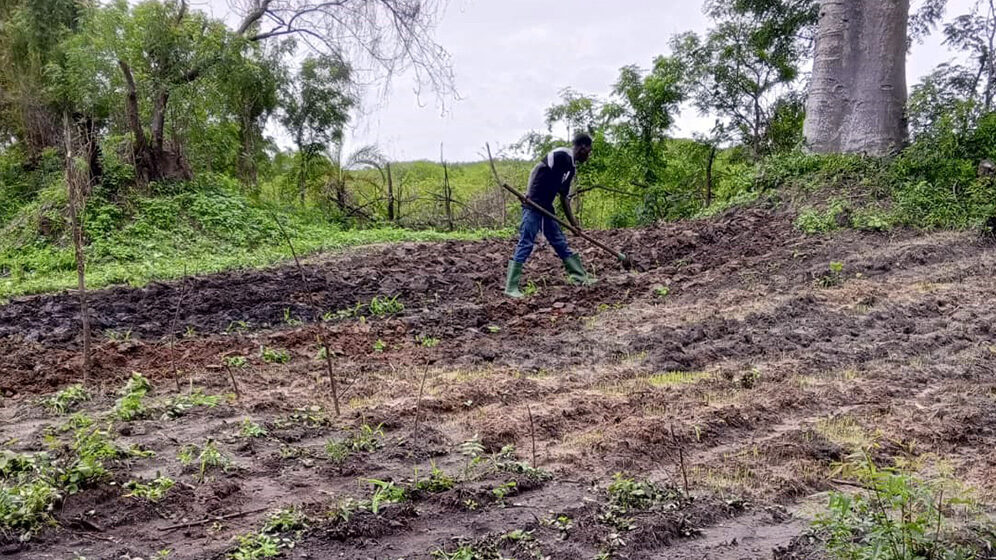
Mariatou Djiba, who is the oldest of the farmers selected by NAFI, is in the process of spreading and dispersing (spreading) biofertilisers in family rice farms in order to enable good quality production and better yields.
Rice Transplanting
Mariatou Djiba and women farmers in a community rice farm transplanting rice during the period between late August and early September. The construction of bunds makes it possible to retain rainwater.


Mariama Sonko (NAFI Senegal manager) and Salomé Lemma, the president of Thousand Currents, visit a rice farm (October) of women farmers in the village of Thionck-Essyl, where Mariatou Djiba is from, to see first-hand and experience the agroecological approaches and practices used for the production of peasant rice.
Peasant Rice Ready for Harvest
Rice farm owned by the women of Thionck-Essyl (Ziguinchor district) grown agroecologically and ready for harvest (December- two months after the end of the rainy season). The quality and performance are obvious.
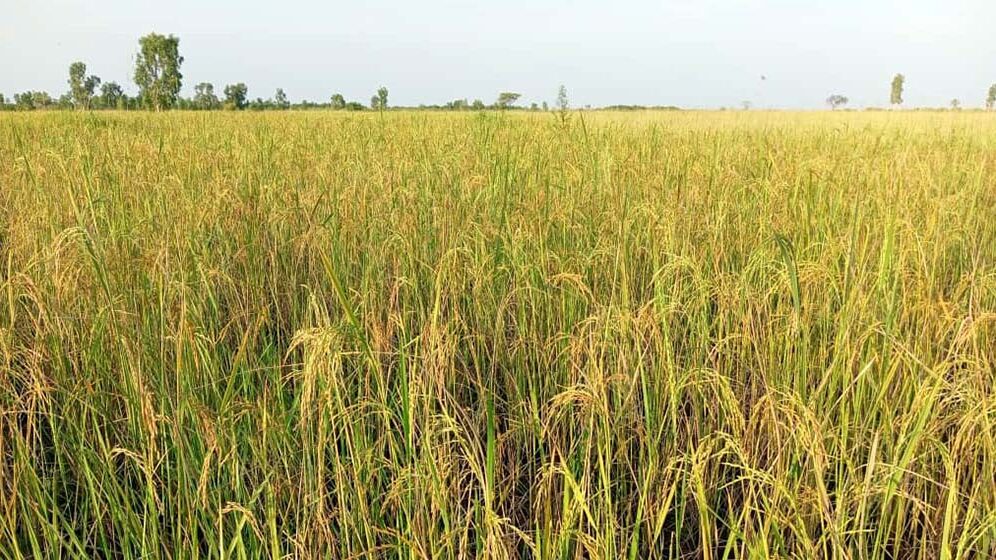
Rice Harvesting
Aïssatou Mballo and her colleagues harvesting rice in December. A small part of the production will be reserved for seeds and a large part for family consumption.
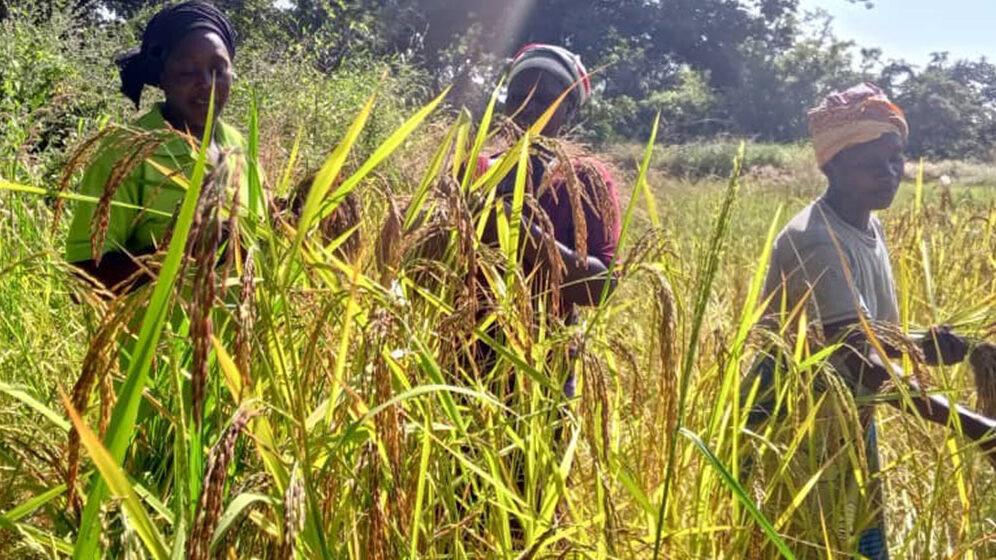

Conclusion
Agroecological approaches and practices make it possible to deal with climate change and its impacts.
